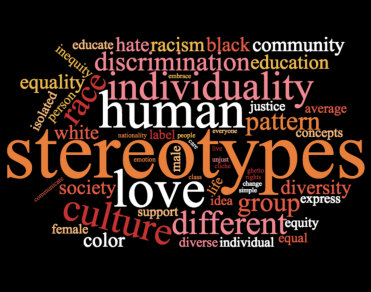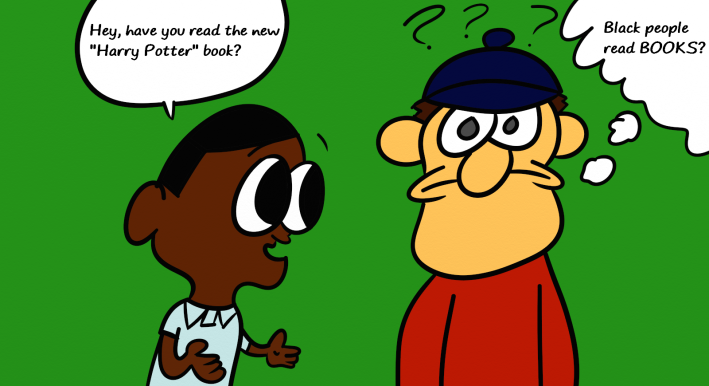
“You are the whitest black kid I have ever met.”
“Why don’t you speak like an actual black person? You definitely want to be white, like them.”
“You are a white boy trapped in a black boy’s body.”
I grew up in Cape May, N.J. and went to Middle Township High School. As soon as I entered the sixth grade, these stereotypes became my reality.
From a young age, my mother gave me and my two brothers homework assignments during the summer time: reading “Harry Potter” books, writing reports on shows we watched and the occasional math problem.
Over the course of this time, in society’s eyes, I became nerdy. Also, my brothers and I became interested in tennis, soccer and lacrosse at the time— not your stereotypical black sports.
Growing up in a small town, people’s opinions about you do not stay quiet for long. When I entered the sixth grade, a group of my black friends pulled me to the side and asked me, “Are you trying to be white.” I was shocked. I had never been questioned about my ethnicity. At this time, my ethnicity wasn’t even something I was aware of.
“No, is that even possible?” I responded. They continued to explain to me that watching anime, reading books and playing tennis were things black people did not do. My whole self-identity had been disrupted. How weren’t these activities things black people did, if I myself a black person, participated in them?
According to Black Girl Nerds, “All of a sudden, you’re labeled as that black person who ‘watches weird and corny crap’ and dresses ‘weird,’ or when it comes to expressing depression, is just ‘spoiled.'”
As I entered high school, I was thankful enough to be placed into the National Honors Society and a few honors classes. This was huge accomplishment for me because, despite being dyslexic, I wasn’t falling behind.
I thought that black people were the problem. I thought they were just jealous. I still didn’t want to be white, but if I wasn’t black, what was I?
The first day of honor’s English class came around and I sat down in the front. We had taken a placement exam to see if our knowledge matched the requirements for this class. My teacher approached me upon entering the class and proceeded to ask me, “Are you sure you are in the right class?”
I wasn’t shocked; I was hurt.
I was hurt that she didn’t even know me and she made this assumption. I was hurt that I came in thinking being in a class like this would change something when in reality, it made everything worse. I asked her to check the attendance sheet and there I was, the first name on the sheet.
We then received our placement exams scores. I got a 96 percent, the highest in the class and, like clockwork, it started.

“I guess ‘we’ have some competition.”
“I didn’t know black people read books.”
“How did he even get into this class?”
My whole self-identity was being challenged and because I didn’t know myself, I thought I had no defense.
It wasn’t that I was physically alone. I did have friends and family, but everywhere I turned to, I was being put into a box.

I was too white for the black kids and to black for the white kids, so I had to come to the realization that I was me. I didn’t need to subscribe to another person’s definition of who I was.
This wasn’t some huge realization for me. I didn’t wake up and decide that I didn’t care what people thought. What people say still gets to me. The difference is I know what people say has more to do with them and not me.
I still don’t know exactly who I am as a person. I probably won’t know for quite some time; however, what I do know is I will not be someone else’s definition of me.



